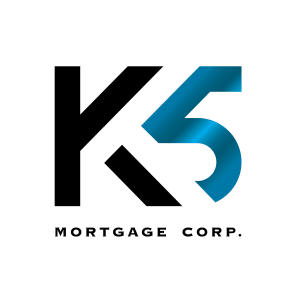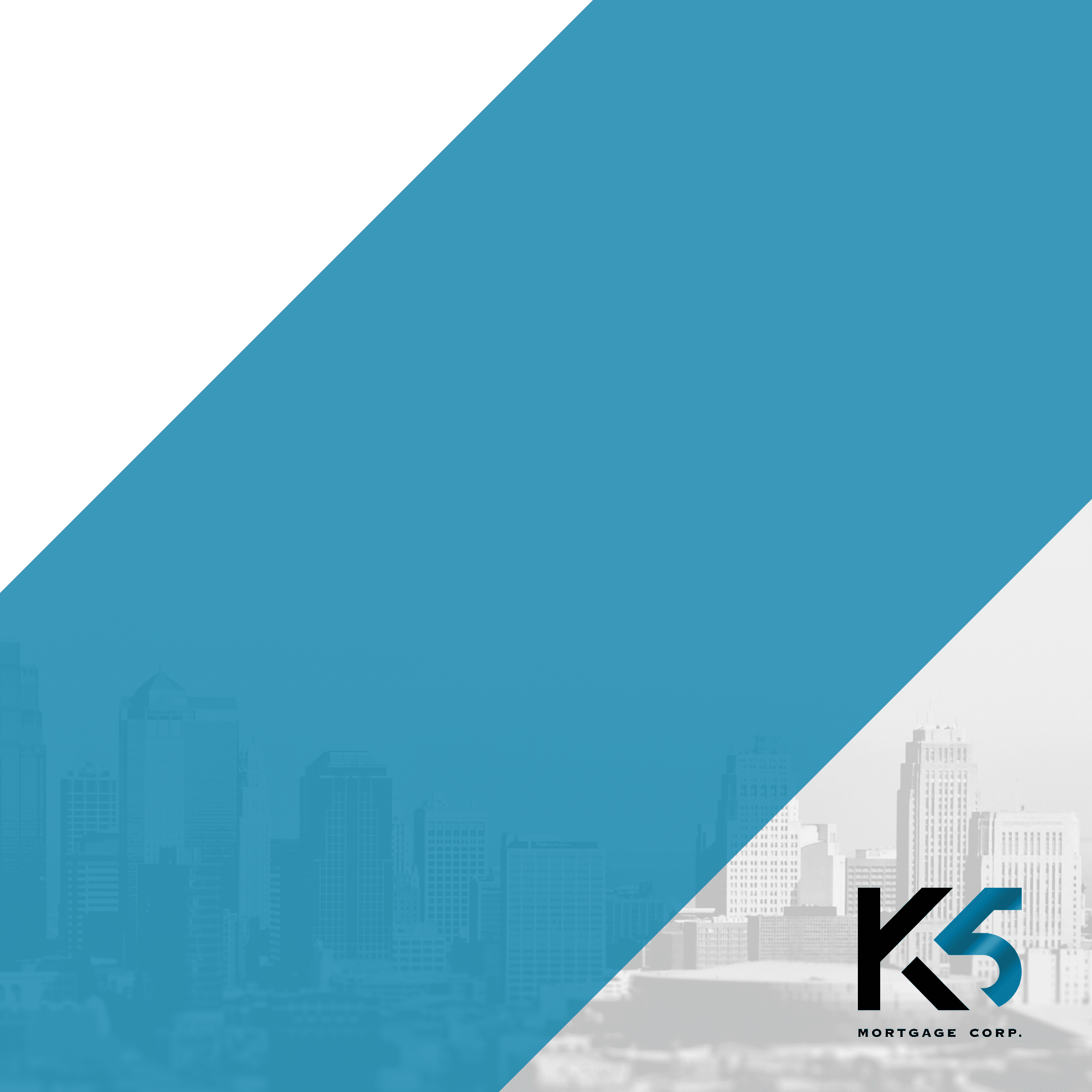
Free Special Report ($47 Value) Showing You Money Management and Mortgage Tips for You to be Debt Free!

Successfully paying off a mortgage before retirement can feel like a finish line that is racing away from you just as fast as you are sprinting towards it. Don’t be discouraged though, it doesn’t have to be this way. Working with K5 Mortgage, taking control of your debt is just a matter of time.
In order to frame the idea of debt management in a less overwhelming light, at K5 Mortgage we’ve put together some money management tips to help homeowners overcome the stresses of mortgage payments.

Get the Free Special Report ($47 Value) Emailed Directly to Your Inbox Instantly!
Take Back Control of Your Mortgage Debt
Personal finance and mortgages go hand in hand. Wouldn’t it be nice if schools did more to teach us about personal finance from a younger age so that all of these things would be second nature by the time it starts to matter? If that were the case, many Canadians would be setting themselves up for greater financial success and more comfortable lives, but unfortunately, many of these skills are things that you’ll have to seek out and learn on your own.
In any case, you’re here, and we’ve compiled this useful guide to help you understand the ins and outs of personal finance, including many important tips and concepts that are crucial to your financial success.
Having a basic grasp on the fundamentals of money management, personal finance, and how to take advantage of the various financial products that exist are some fundamental skills to have, especially when you’re getting closer to buying a home.
It goes without saying that you won’t learn every single advanced thing that there is to know about money from a money management pdf. Still, our goal was to pack this full of as much practical, useful, and actionable information as possible. Read on for a sneak peak into the useful information you’ll get from the free download.
If you want to take things even further still, reach out to our expert financial team for more information.
Personal Money Management Tips
There are two main pillars of accumulating wealth, growing your savings and being able to afford the things you want in life, including money for education, retirement, vehicles, travel, and ultimately purchasing the home of your dreams. The two main ways to increase your wealth are to earn more and to spend less — seems simple, we know, but without the right information, taking control of your finances is a lot harder than it seems.

In light of this, we’re sharing an assortment of helpful tips, strategies, and money management skills that are worth knowing about. Of course, you don’t need to follow every one of these to a T — use them as guidelines and ideas to find what works for you.
The 10% Rule
This strategy was popularized in the book The Wealthy Barber, years before David Chilton appeared as one of the investors on The Dragon’s Den. There’s an entire book about this, but to very quickly summarize it, the idea is to put away 10% of your income immediately when you’re paid. By doing this from a young age, anyone can put together a very nice little nest egg for themselves, including a down payment when they’re ready to buy their first home.
Even if someone only earns $30,000 per year starting when they’re 18 years old, they’ll still have plenty of savings for a down payment by the time they turn 30. By investing this money wisely in the meantime, it will grow on its own, too. You can also imagine how quickly that money can add up with a larger salary. Regardless of income, 10% really starts to add up over time when you always, always, always set it aside.
Investing in Yourself
Whether you’re working for someone else or you have your own business, being at your peak is important. Learning marketable skills, whether that means from an educational institute or on the job, or practising your craft, can make your work more valuable in the marketplace. Saving more money can take away a lot of the pressure on your personal finances, but there’s only so much you can cut out of your life in the name of savings. Increasing your earning power through valuable skills is a great way to improve your saving capabilities without radically changing your lifestyle.
The Power of Saving $1
Earning $1 more versus saving $1 are not the same thing. It sounds strange at first but think of it this way — if you want to go to the store and spend $1, you actually need to have earned significantly more than that $1. We’re using $1 as the example here, but extrapolate it into any larger amount for bigger purchases, and the same logic holds.
Think about your paycheque and all of the various taxes and deductions that are taken from it. Now, think about when you buy something at the store, the taxes are added on top of the purchase price. Because of this, if you want to buy something that costs $1, you’ve actually had to earn closer to $1.30 or $1.40, or even more, depending on what your tax bracket is.
That’s why saving $1 can be more beneficial than earning an additional $1. Keeping your expenses lower is a great way to grow your savings, especially if you’re also able to increase your income, too.
Tax Brackets: Earning More Is Always Better

There’s a fairly common misconception that some people have when it comes to tax brackets. Some people become hesitant to earn more money when they’re approaching the top of their tax bracket because they’re concerned that going into a higher bracket will leave them with less money overall. Here’s a simplified hypothetical to help illustrate the confusion.
Let’s pretend that one tax bracket dictates that anyone earning under $10,000 pays 0% tax, and anyone earning $10,000 or more pays 20% income tax. Some people believe that you’re better off earning $9,999 than earning $10,000 because once they cross over that $10,000 mark, they’ll have to pay the 20% tax on all of their money. This is NOT how it works.
With our tax system in Canada, you only have to pay the higher tax rate for the money that falls into the higher tax bracket. In the above example, this individual still pays 0% tax for the first $9,999 and only the 20% tax rate on the final $1.
This seems obvious when you understand how a progressive tax system works, but if you’ve never had it explained, it’s an easy enough mistake to make that it’s worth mentioning.
If you get a raise at work, or you come across additional income in some other way, that’s always a good thing — don’t worry about trying to calculate the exact amount that would put you into a higher tax bracket. Being in a higher tax bracket means that you’re making more money, and that’s a positive thing when it comes to your personal finance, savings, and buying a home.
Mortgage Tips for First Time Buyers

Here are some things you need to keep in mind when you’re preparing to buy your first home, during the buying process, and once you’ve had your offer accepted and the home is yours.
There are many things you can do before you apply for a mortgage or start looking at homes. These actions can help lay the foundation to make the whole process a lot easier and ensure that you don’t run into any unpleasant surprises.
Pay Off Your Debts and Start Saving
Pay off your larger debts like credit cards, because having high-interest loans working against you is not a great way to start your journey into homeownership and a mortgage for first-time home buyers. You’ll need to save up a decent-sized nest egg before you buy a home, and it’s not a good idea to try to save money when you have high-interest debts piling up.
This is also a time to take a look at your investment portfolio, if you have one, and assess your investments’ risk. If you have a riskier portfolio, you’re risking having your down payment slip away from you when you’re ready to buy a home — since a riskier portfolio is more prone to movements in either direction. That can be okay, in the right circumstances, but when you’re in savings mode, you may want to think about something a bit less volatile to ensure that your money is there for you when you need it, without having to sell at a loss.
The down payment that you’ll need to save up can range from 5%-20% or more. 5% is the minimum, and if you’re able to put down 20%, you’ll save some money on interest, and you’ll also save some money by not needing additional insurance. It’s okay if you only have 5% to put towards the down payment. Just make sure you still have some additional savings to help with all of the other costs associated with buying a home.
You don’t necessarily want to dump all of your savings into the down payment. If a 5% down payment would eat up all of your savings without leaving you with any money in an emergency fund, then you’re not ready to purchase a home — you can’t afford it quite yet — so keep saving a bit longer until that 5% down payment won’t use all of your available funds.
Work on Your Credit Score
The sooner you can start doing this, the better. Credit scores take time to shift. The best time to start working on your credit score was years and years ago. The second-best time is right now. For starters, get a copy of your credit report — you don’t need to pay for this, you’re entitled to a free copy from the major credit bureaus.
You’ll want to check your credit report to make sure all of its information is accurate. Mistakes happen and things get misreported. Your report could incorrectly show that you haven’t paid a debt that you actually have paid or contain incorrect information that’s dragging down your score. The only way to find out is to check. It’s possible that some old bill from years ago was sent to collections and has damaged your credit score without you even knowing.
It’s also possible that something is misreported, a total mistake. It happens far more often than it should, so keep an eye on your credit report because your credit score is one of the major factors that will determine your eligibility for a mortgage.
If you have high levels of credit card debt, or you’ve recently opened up new credit cards, lines of credit, or other loans that’s not ideal, so you’ll want to stop doing that if you can. Pay off your credit cards as much as you can, stop opening new cards to save a few bucks at a department store, and consider closing some of your newer cards.
It’s a good idea to keep your oldest credit cards open, even if you only use them once or twice a month, and pay them off immediately. The age of an account is a factor that’s considered, so make sure you aren’t churning your older cards and replacing them with new ones.
Know Your Numbers
It’s vital to know your budget, your timelines, and roughly how much of a mortgage you’ll be able to get approved for. Just because you’re approved for a certain amount and just because you can afford it, that doesn’t mean that it’s a prudent financial move to max yourself out completely.
There are three separate numbers to keep in mind when you’re figuring out your budget for a home:
- How much money you want to spend on a home.
- How much money you can afford to spend on a home.
- How much money you’re approved for in your mortgage.
Start by determining what you can afford based on your monthly budget. If you don’t have a monthly budget, you’ll need to make one. Start by tracking all of your income and expenses for a few months, seeing what you’re typically spending on things, and determining how much you’re currently spending on housing.
If you want to get a home that’s going to cost you more than you’re currently spending on housing, which other monthly expenses are you willing to sacrifice? If you decide that you’re going to spend a bit less on other things each month, take that for a trial run to make sure you’re okay with this new lifestyle. If so, then you can feel more comfortable spending a bit more on your housing moving forward.
Beyond the monthly cost of your mortgage payments and the up-front costs and fees associated with the home-buying process, you should also have some money set aside for unexpected repairs, maintenance, and upkeep of a house, and your property taxes. When your dishwasher breaks, you can’t call your landlord to fix it anymore.
You’ll need a new roof eventually. You may have wiring issues, plumbing issues, and plenty of other expenses that add up over time. It’s difficult to predict exactly how much you’ll need, but the point is that if you’re cutting it very close to your monthly budget, it’s only a matter of time until a big cost comes up, and you’ll need to be ready for it.
When all of the preliminary steps are taken care of, it’s time to shift your focus to the specific home you would like to live in. At this point, your know your numbers, you have a budget, and it’s time to pick a spot.
Research Neighbourhoods

Make a Strong Offer
By putting in all of the work and research required to get to this point, you can feel more confident making a strong offer once you find a home that checks all of the most important boxes for you. Depending on what houses are currently selling for in this neighbourhood, you’ll have to adjust how competitive your offer is. If homes are frequently selling far above the asking price, you probably won’t get away with coming in below the asking price, for example.
Your real estate agent’s job is to help you navigate this, but it also doesn’t hurt to keep a bit of an eye on the market as well. Just keep in mind that finding an agent whose opinion you trust and who you feel is really looking out for your best interests is going to give you much more useful information than casually trying to observe the market from a layman’s point of view.
But also remember that your agent isn’t there to be your life coach. Their job is to get you into a home that meets your requirements, so that is the only expectation you should really have from them. They’re going to operate in a way that helps you find the home you want and guides you through making an offer and moving forward with everything concerning the purchase of your new home.
Paying Off Your Mortgage Quickly
Paying off your mortgage quickly can save you money on interest, but it’s not always the best idea. The first thing to consider is whether you’ll have to pay any additional fees or penalties for paying off your mortgage quickly. If you’re going to be hit with fees, it’s not always worthwhile to make additional payments. It could happen — it’s just something you’ll have to calculate and account for.
If you have an open mortgage, you’re able to make additional payments and pay off your mortgage more quickly. Open mortgages will carry a larger interest rate than a closed mortgage — it’s the price you pay for the privilege of paying it down sooner since the bank earns less money when a mortgage is paid off in less time.
On the other hand, if you have a closed mortgage, your options could be more limited. Many closed mortgages will allow you to prepay some of your mortgage, for instance, 10% or 20% of the original principal amount of the mortgage, on an annual basis.
Another way to pay off your mortgage faster is to shorten the amortization period. This means that the length of your mortgage in years will be shorter, and you’ll make larger monthly payments. Changing this can be useful if your income increases drastically, but it will also increase your monthly payments. It saves you money because you’ll be paying interest in your mortgage for a shorter amount of time, but not everyone can accommodate larger payments into their budget.
Should You Pay Off Your Mortgage Faster?

If you come across some extra money like a big tax return, a lottery win, a bonus at work, or an inheritance, and you want to do something responsible with that money, then you can use it to pay off your mortgage so that you’ll own your home sooner, and you’ll pay less interest over time.
When mortgage rates are low, it’s not necessarily the best idea to put all of your extra money into paying it off because there could be better opportunities for you to invest that money. If your rate is 2% or 3%, and you’re not too risk-averse, many investment opportunities in stocks or bonds could earn you greater yields on that money, compared to the amount you would save by paying off your mortgage sooner.
Simply put, a mortgage is some of the least expensive money you’ll ever come across — think of it as a very cheap loan. You’re better paying off your credit cards or other loans before paying extra money towards your mortgage because a credit card loan is much more expensive to maintain than a typical mortgage.
On the other hand, money paid towards interest on your mortgage isn’t tax-deductible, it may be better to use strategies like The Smith Manoeuvre to make your debts tax-deductible.
Take Control of Your Finances With K5
These basic mortgage tips should help you feel more confident during the process of finding a mortgage and purchasing your dream home. If you’re looking for advise specific to your financial situation, reach out for a 20-minute consultation and explore refinancing and alternative lending solutions with one of our experts!

